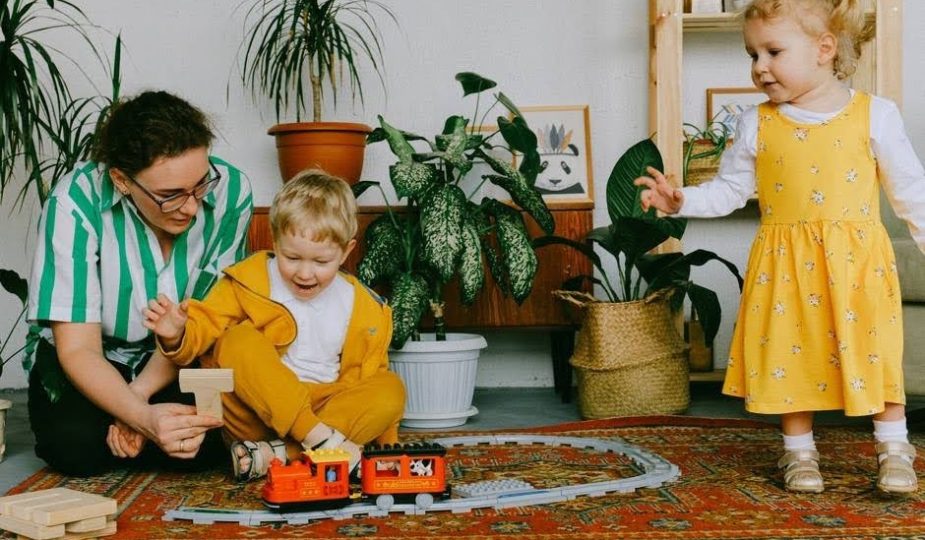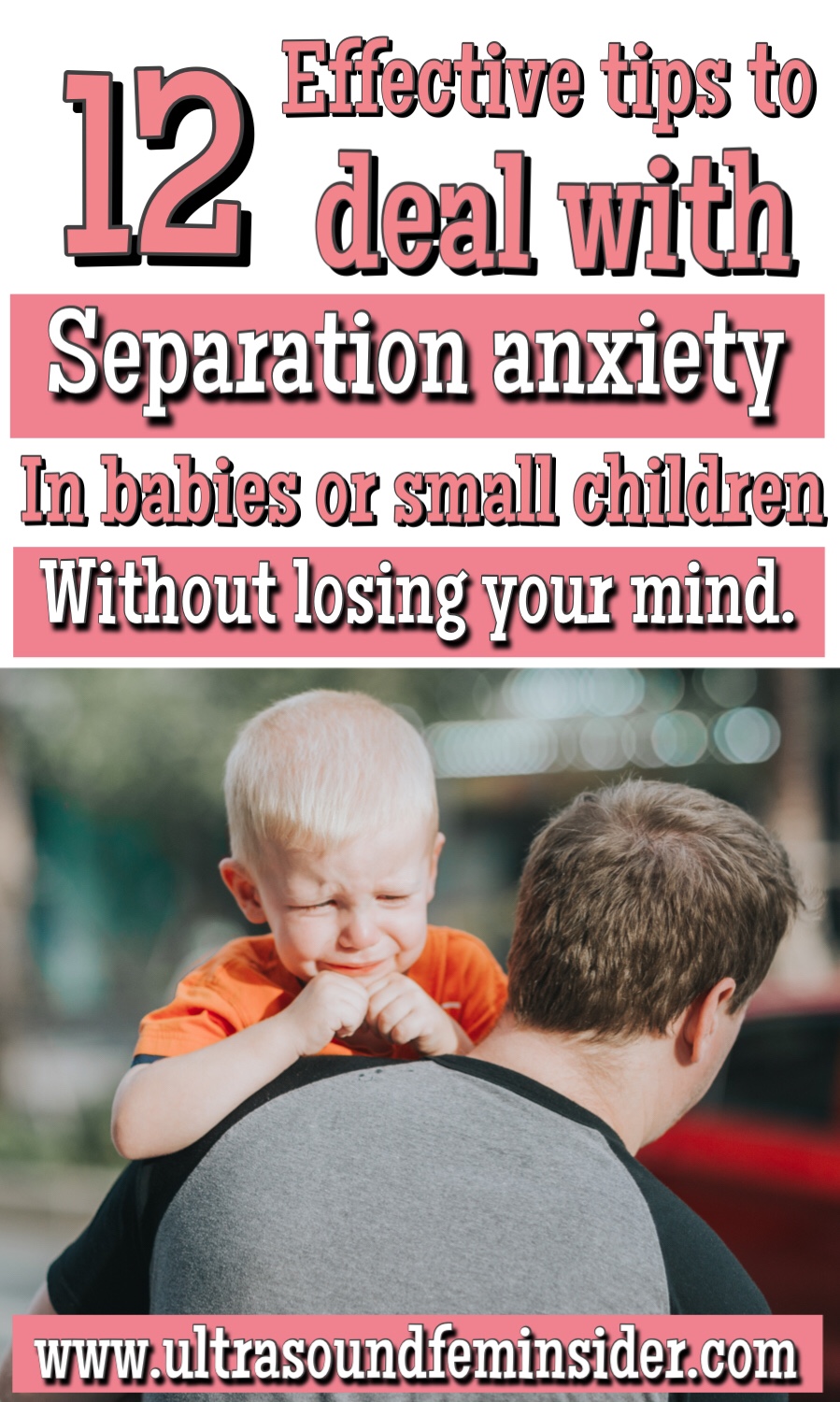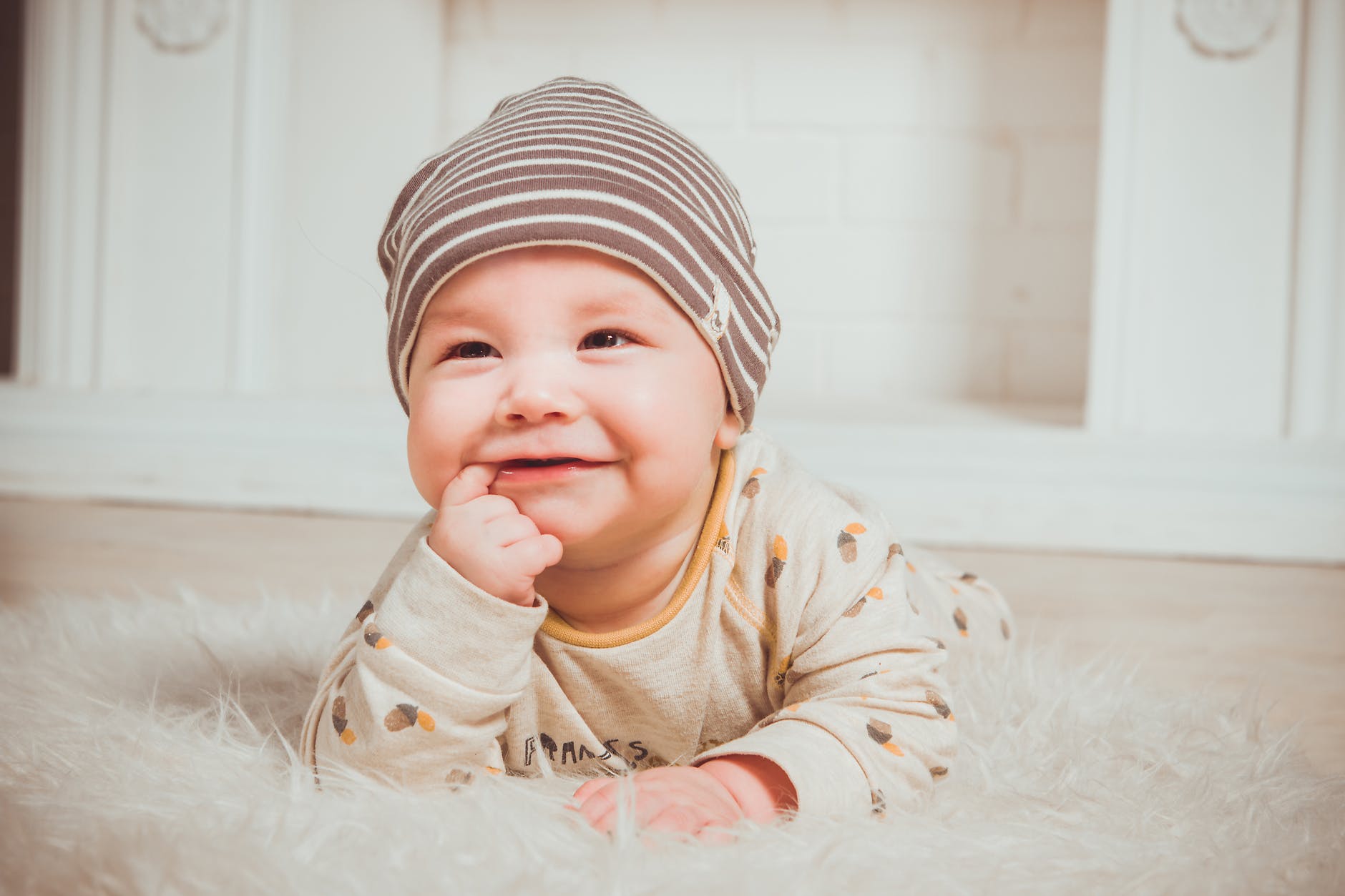If you are a working mommy like me, dealing with my son’s separation anxiety was heartbreaking, and it made me feel like a terrible mother having to leave him in a daycare to go to work every day. In this post, besides sharing my story about my son’s separation anxiety with you, I am going to give you some tips to effectively deal with it, without loosing your mind on the process.
Ready? Let’s begin…
At that time, he often asked for more attention from me rather than from anybody in the house. No matter where he was or who was holding him, as soon as he saw me, he suddenly cried as if he was asking me to hold him. When I came close to him, he abruptly opened his arms and looked so happy. His cry stopped in a moment. It was truly an unspoken feeling I had experienced.
But there was also time when he acted differently from what I had expected. When I went for work, I thought he would cry hard to see me leaving him. I hugged him tight and kissed his face again and again.
I told him, “Baby, Mommy have to go to work now. Eat and drink a lot, okay? And have a good nap. I’ll be back. Love you very much, bye.”
Sometimes he kept looking at me when I said so. I expected him to start weeping. But it didn’t happen. I wondered why. I found out later that he was interested with the wheels of the car I traveled in everyday.
Whenever the car started to run, my son always kept his eyes on the wheels. Looking at them spinning must have been very exciting to him. I just smiled, though my heart broke a little. I soothed myself by thinking that it was good for him being curious of strange things.
My son was a baby who had sleeping problems. Throughout the night during his sleep, he often woke up several times. If he woke up and didn’t find me nearby, he would cry out loud, making the whole house panic as if something really bad happen.
When I got into the bedroom, he would crawl toward me, and then I hugged him. He’d be calm afterward. Breastfeeding really worked to put him back to sleep.
Thank God I decided to breastfeed him so that I wouldn’t be engaged with the rush of preparing formula during the night. Yes, I chose to breastfeed him in night times, even though he still got formula in day times. Maybe this breastfeeding activity had created the bond between us. I enjoyed it, and still until now. This might also what made my son didn’t want to stay away from me.
If your baby or child has the same characteristic as my son has, I’m sure you have the same feeling as I do. If you think that your baby’s cry (for being away from you) annoy you, just remember that it won’t last forever.
My latest video. To visit our YouTube channel, click this link.
What is exactly separation anxiety on babies?
Separation anxiety is a phase in your child’s development during his early years of life. Almost all children go through this experience. Babies have not yet developed the concept of object permanence, which means that a hidden object is still there, it just cannot be seen. Without these concepts, babies can become anxious and fearful when a parent leaves their sight. Separation anxiety is usually at its peak between 10 and 18 months. It typically ends by the time a child is 3 years old.
What are the signs of separation anxiety?
Babies experiencing separation anxiety fear that a parent will leave and not return. The fear may be worsened in the presence of a stranger. Typical responses of babies experiencing this normal phase of development may include the following:
- Clinging or crying, especially in new situations.
- Crying when you leaves the room.
- Awakening and crying at night after previously sleeping through the night before.
- Refusal to go to sleep without parent nearby.
Share to other moms.
How can you help your child with separation anxiety?
Children who feel secure are better able to handle separations.
Cuddling and comforting your child when you are together can help him or her feel more secure. Other ways to help your child with separations include the following:
- Comfort and reassure your child when he or she is afraid.
- At home, help your baby learn independence by allowing him or her to crawl to other (safe) rooms for a short period of time alone.
- Tell your baby if you are going to another room and that you will be back; then come back.
- Plan your separations when your baby is rested and fed, rather than before a nap or meal.
- Introduce new people and places gradually, allowing your baby time to get to know a new care provider.
- Do not prolong good-byes and have the sitter distract your baby or child with a toy as you leave.
- Introduce a transitional object such as a blanket, a pillow, or soft toy to help ease separations.
- For night awakenings, comfort and reassure your child by patting and soothing, but avoid letting your child get out of bed.
- Create a predictable ritual that you will do every time, when separating from your baby, and more importantly, be consistent with it.
- Be specific, and very clear about your return, in a way that your baby can understand.
- Practice separation once in a while. For example: send your child to grandma’s house for a few hours.
- And lastly, but certainly not least. Keep your promises to your child. By doing that you’ll build trust as your child becomes confident in his ability to be without you when he is certain that you’ll return.
Related posts.
7 effective techniques to build your child self-esteem.
How to set your kids to a life of success.
How to boost your baby’s brain growth and development.
Final thoughts How to deal with separation anxiety in babies.
As you can see dealing with separation anxiety in babies it’s quite common and usually harmless for your baby. It is only a transition period in the development of your baby. However, it is advisable to treat the situation with great care to avoid damaging the bond that binds you and your baby and his feelings.
Always remember that, It’s rare that separation anxiety persists after the preschool years. Therefore, if you’re concerned that your child isn’t adapting to being without you, talk with the pediatrician. The doctor has certainly helped support families in the same situation and can help calm your unease and determine a plan to support both of you.
I hope you enjoy this post! Feel free to share with us your thoughts about this topic.
Zadi, xo.











Wow this is very interesting.
Anxiety seems to be something that alot of people have and it sometimes makes them panic to a cripple, to my surprise. I didn’t realize how badly it affected some people when I was younger and had always thought of it as possibly being something similar to a mild shyness or being a little nervous, but apparently in some cases it’s like a rush and intensity of all kinds of emotions and doubtfulness and being worried, and this is how grown folks in many instances profess to feel when they are in this state of anxiety, so I know it can’t be a pleasant experience for very young children either. This was a very interesting look at the issue Zadi.
And I also want to say thank you alot for visiting my page Zadi. I just wanted to let you know that I have noticed, and words cannot fully express enough how grateful I am — it is always a great joy to see you and to talk to you.
Yes dear friend, anxiety in small children is usually misinterpreted by other behavior problems, parents sometimes don’t realize that is actually an anxiety issue. The good thing is that is part of their development and something that obviously should stay in the pass as they grow old.
Thank you so much for appreciating my post!!!
Wonderfully put, this issue is so much clearer to me now. You are so right, something like this is a really major experience for them since they are used to being with the parents often, but to have such a huge separation plus it involving a complete stranger is alot for their little hearts to take into at once but eventually they weel grow to get use to it, especially with the right parenting and proper care from all sides.
And you are welocme Zadi; anytime hahaa
[…] How to deal with separation anxiety in babies. […]